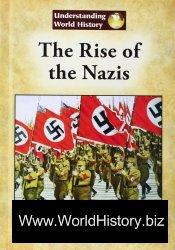Although conflict between communists and noncommunists in Indonesia largely ended when Suharto imposed his control over the country, separatist forces in several regions continued to struggle against Suharto's government. Many of these separatist movements continued to pose serious problems for the country after Suharto's fall from power in May, 1998. In Aceh (pronounced "ah-chay"), a region on the far northern and western tip of Sumatra, opposition to the central government is largely religious in character.
Suharto, president of Indonesia from 1968 to 1998. (Library of Congress)

The people of Aceh are devoutly Muslim, and the Indonesian government granted Aceh the status of a special region in 1959, giving recognition to the Muslim laws and customs of the area. Nevertheless, some Acehnese are unhappy with a nonreligious government and would like to have their own government, which would rule according to Islamic law, the legal principles of the Muslim faith. The Indonesian military suppressed the Muslim insurgents during the 1970's, but in the late 1980's the Aceh Merdeka (Free Aceh) movement took up arms again with foreign support from Libya.
On May 12,2000, the Indonesian government under President Abdurrahman Wahid, signed a cease-fire agreement with the rebels of Aceh Merdeka. Despite this hopeful sign, there were reports of continual violations of the cease-fire by both the Indone-
Sian military and the rebels. In August, 2002, American diplomat and retired general Anthony Zinni visited Aceh in the hope of mediating talks between the rebels and the Indonesian government. However, the new Indonesian president, Megawati Sukarnoputri, identified the Aceh rebels as Islamic terrorists and declared that Indonesian military effort against the rebels was part of her support for the U. S.-led global war against terrorism.
Irian Jaya, a region on the western part of the island of New Guinea, was the site of another struggle against the central government. This region, formerly known as Dutch New Guinea, remained under the Dutch after Indonesia obtained its independence in 1949, although Indonesia claimed it as part of the country. Only in 1963, following conflict between Indonesia and the Netherlands, was control transferred to Indonesia.
The people of Irian Jaya are culturally different from the Javanese and this has led to some clashes. In addition, the government has assisted large numbers of people in moving from overpopulated Java to Irian Jaya, creating the impression that the Javanese are overwhelming the New Guinea population.
The forces of the Free Papua movement have engaged in guerrilla warfare against the Indonesians, sometimes escaping across the border into the nation of Papua New Guinea, which occupies the eastern portion of the island. This has led to tensions between Indonesia and New Guinea, and in 1992 New Guinea agreed to crack down on guerrilla camps along its border with Irian Jaya.
As in Aceh, the end of the Suharto government did not bring a solution to regional conflict. In late 1999, several of the towns of eastern Irian Jaya took the side of the Free Papua movement and began flying the movement's flag. The conflict in Irian Jaya took on an international dimension at the end of August, 2002, when two Americans were killed and fourteen were wounded in an ambush near a gold mine run by an affiliate of American multinational corporation Freeport-McMoran. Local people had considered the mine a symbol of Indonesian control and had complained that the company had been damaging the environment and destroying sacred lands. Indonesian authorities blamed the rebels of the Free Papua movement, but some observers claimed
That the attack may have been staged by the Indonesian military to turn world sentiment against the guerrillas.
Conflict in the region of East Timor led to international criticism of Indonesia. This eastern part of the island of Timor was a colony of Portugal until the end of 1975. Upon leaving, the Portuguese turned their weapons over to a political group known as Fretilin. Fighting broke out among Timor's various factions and Indonesian forces invaded, claiming that they were needed to restore order.
In 1976 an Indonesian-supported government in Timor asked to become part of Indonesia. Many, perhaps a majority, of the primarily Roman Catholic Timorese opposed joining Indonesia. Fretilin guerrillas continued to fight against government forces, and some observers have claimed that the Indonesian military has been guilty of widespread brutality and violations of human rights in their efforts to stamp out the Timorese rebellion. In 1992 government troops captured Jose Alexander Gusmao, a top Timorese rebel leader. In November, 1991, Indonesian soldiers fired into a crowd of about two thousand people at a peaceful funeral, killing as many as fifty. Although the army court-martialed the officers in charge and sent four of them to prison, many people in Timor and elsewhere in the world saw this as an example of Indonesian oppression. In 1994 proindependence Timorese staged a protest that turned into rioting at the site near Jakarta of the Asia-Pacific Economic Cooperation Summit meeting of leaders from various countries in the region.
In January, 1999, Indonesian president B. J. Habibie, who had succeeded Suharto, declared that East Timor would be allowed to hold a popular referendum to decide whether the territory wanted to continue as part of Indonesia or to become an independent nation. The referendum, which was held on August 30, 1999, was marked by acts of violence and terrorism committed by pro-Indonesian militias that had reportedly been organized and armed by the Indonesian military. Despite efforts to intimidate voters, 79 percent of those who voted chose independence.
The Timor referendum was followed by shooting, rampaging, and burning by the pro-Indonesian militias and by Indonesian soldiers throughout East Timor. Many Timorese died, much of the country was destroyed, and thousands of refugees fled to Australia and other countries. Peace was reestablished only when United Nations forces entered the newly independent country. East Timor became officially independent from Indonesia in May, 2002.




 World History
World History









